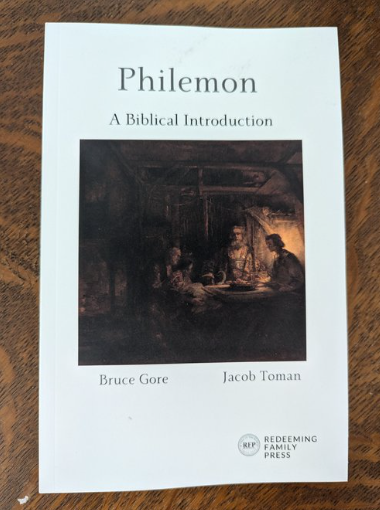What promises? 2 Corinthians 7:1
In one of the most egregious chapter divisions in all the English bible, 2 Corinthians 7:1 issues a firm command (an imperative) based on the realities of God's Word (indicative promises). My curiosity has sparked regarding the promises mentioned in this bold, assertive command from the writer of 2 Corinthians - the Apostle Paul.
2 Corinthians 7:1 Since we have these promises, beloved, let us cleanse ourselves from every defilement of body and spirit, bringing holiness to completion in the fear of God.
Earthly Blessings
Sometimes there are so many promises of God that we could lose count or have trouble following exactly which promises a biblical writer is referring to. Thankfully, the Apostle Paul cites exactly what he is referring to by quoting from Leviticus 26:12 and Isaiah 52:11. In these two passages, we see some extraordinary promises amid humanly impossible circumstances:
Leviticus 26 details, in no uncertain terms, the earthly blessings God brings about for his obedient and faithful people. These blessings are juxtaposed with what contemporary psychologists may call "negative reinforcement". God (through Moses in Leviticus) lays out in earthly means the cost/benefit analysis of faithful obedience to His Word. These benefits and corrections are indeed promises that surround the immediate verse (Leviticus 26:11-12) which Paul quotes in 2 Corinthians 6:16.
Leviticus 26:11-12 I will put my dwelling place among you, and I will not abhor you. I will walk among you and be your God, and you will be my people.
This verse comes as the triumphant crescendo in a long list of earthly blessings. Read some of these promises of this, our good and generous God:
If you follow my decrees and are careful to obey my commands, I will send you rain in its season, and the ground will yield its crops and trees their fruit.......and you will eat all the food you want and live in safety in your land.......You will still be eating last year's harvest when you will have to move it out to make room for the new. (paraphrased Leviticus 26:3, 4, 5, and 10)
Bountiful blessings of harvest, food as an unending supply - as a promise to a people who had lived for 40 years, daily depending on mana from heaven or other miraculous food provisions. My wife and I frequently visit our local grocer. We typically need to purchase new food with 4 children every 3-5 days (depending on the time of year). These ancient people of God, who first heard this promise of God, had no refrigerators, had no grocer, had no "future plan" for "tomorrow's meal" except for the bountiful harvest which God himself generously and miraculously provided. In the midst of this challenging period, God issues this promise: faithful obedience to him brings with it an endless buffet accompanied by safety.
Peace from Danger
I will grant peace in the land, and you will lie down and no one will make you afraid. I will remove wild beasts from the land, and the sword will not pass through your country. You will pursue your enemies, and they will fall by the sword before you. Five of you will chase a hundred, and a hundred of you will chase ten thousand, and your enemies will fall by the sword before you.......I will look on you with favor and make you fruitful and increase your numbers, and I will keep my covenant with you (paraphrased Leviticus 26:6-9)
The ancient Israelite people were never far from danger, with almost every neighbor they bumped into during their exile in the wilderness turning hostile. These slaves were not battle-hardened warriors of mythology, or readily made heroes from epic combat. These were women, children, and men, young and old, who had labored with the whip of Pharaoh as reward for their labor. These were people who were as oppressed as any throughout the history of the world. Who had to worry about possible extinction due to the extermination of their infant males (Exodus 1-2). And to these weary, beaten, and abused people, God issues this promise: faithful obedience to him brings with it a victory that overcomes every possible foe.
These are the promises from God in Leviticus 26:1-10, but these are not the peak or the finale! God took it upon himself to raise up a lowly, homeless people, a lonely, nomadic people, and make them his own. God chose to take a people who were owned by a king who sought to abuse them, mistreat them, and only saw their value in what they could accomplish on his behalf. God took these people and saw value in them because he had made them. Rather than delighting in what these lowly, homeless, lonely nomadic people could accomplish, God accomplished his delight by adopting these homeless nomads. To these slaves of a destructive master, God issues this promise: faithful obedience to him provides himself as a home that will never abhor or despise, but will instead delight.
I will put my dwelling place among you, and I will not abhor you. I will walk among you and be your God, and you will be my people. I am the Lord your God, who brought you out of Egypt so that you would no longer be slaves to the Egyptians; I broke the bars of your yoke and enabled you to walk with heads held high. (Leviticus 26:11-13)
It is these promises that Paul refers to as he declares in 2 Corinthians 7:1, "Since" or "Therefore" or "Because" - we have these promises, we ought to... do something.
Some of the promises Paul quotes are found in Leviticus 26:12, and some in Isaiah 52:11. The promises in Leviticus 26 concern who God is, what He has done, and what He promises to do based on the faithfulness or unfaithfulness of His people. Isaiah focuses on the people of God in the midst of what God has already accomplished.
Paul's brilliance in writing cannot be lost as a writer, a lawyer, a preacher, and a friend.
Paul writes with eloquence in his citations (Old Testament Promises of God).
Paul writes with righteous concern for his "clients" (the Corinthians)
Faithful Obedience
Paul's eloquence in citing Leviticus 26 and Isaiah 52 is found in both the immediate quote and the surrounding context of the quote. In Leviticus 26, it was the blessings and potential consequences of faithful obedience or disobedience to God's Word in Isaiah's life and ministry during a time when enemies of God and his people had arrived in the Promised Land. Isaiah 52 speaks about a time when there will be no more defilement (52:1), a time in which God himself will hear his people's plight (52:6), and a time when God will rectify all ruins (52:7-9).
False Teachers
The church in Corinth was experiencing all the ruin that can come to God's people when invaded by false teachers. Paul's literary usage of Isaiah 52 would have demanded in Corinth a reading that answered, "Who is Paul referring to as the Daughters of Zion, and who are the Defilers of Zion?" Paul doesn't cite outsides are the problem, but rather personalizes the defilement of God's temple by his usage of the personal pronoun "us" in 7:1. This isn't a problem with "them" - those outside, this is a problem with "us" - those inside the church of Corinth. The wording of Paul leaves very little to the imagination to the context of Isaiah 52. In other words, Paul equates the ruination of Zion with the ruination of the Corinthian church, and the sanctification of Zion with the sanctification of the Corinthian church.
Paul's righteous concern for his clients is found in his exactness in dealing with God's law. God's law in Leviticus 26 clearly states there are joyous, abundant blessings for faithful obedience, and terribly abundant consequences for rebellious disobedience. Paul states this is the reality of the present world. God is a promise-keeping person, and since God's promises offer reward or curse, God's faithfulness is wholly distinct and separate from unrighteous defilement. Paul urges his clients (the Corinthian church) to live in such a manner that puts as much distance between themselves and unholy rebelliousness as possible. In 7:1, Paul states that a cleansing is needed from EVERY defilement - not just some, not a specialized, localized iteration of defilement. Rather, a wholesale, all-encompassing scale separation from every defilement.
Paul, in this passage, isn't sugar coating or lifting the weight of the situation. He wants to make extremely clear, beyond all possible doubt, that righteousness and wickedness cannot co-exist, and that a choice by his client (the Corinthian church) to stay close to wickedness is the action of rejection of righteousness. Imagine a restraining order is placed upon you, and you are no longer allowed within 10 miles of your favorite restaurant. Paul, if he were your lawyer in this regard then advises you not only to stay 10 miles away, but also says "Don't order delivery from that restaurant, don't eat leftovers from your friends from that restaurant, don't go to a local deli that also does business with that restaurant, and move towns immediately if a franchise of that restaurant opens in near you!". In other words - Paul leaves no room for "sitting on the fence" or indication by the Corinthian church, the promises of God demand action, inaction is tantamount with embracing the status quo of defilement.
Cleanse Ourselves
The command of 7:1 to "cleanse ourselves" is one that demands change among the author and the audience. Paul includes himself with the Corinthians. It's not a harsh demand from an unknown entity, but rather an inclusive command in light of the reality of who God is and who the Corinthian church is.. In 2 Corinthians 6:16, Paul states, "What agreement has the temple of God with idols? For we are the temple of the living God,". The Corinthian church is holy, so they must actively choose to reject that which defiles their holiness.
Completion in the Fear of God
This call to holiness ends with the goal of finding completion in the fear of God. Many of us have fears, and those fears impact our decisions, our lives, and our activities. Paul here calls God's people - the church of Corinth, to separate from each and every thing that defiles (ruins) the reality of their status as God's holy temple. While separating from all that defiles, the byproduct of obedience to Paul's call to action results in fear. What a strange thing to have fear as the goal of a command! Yet this fear isn't a fear of the many things we may regularly fear; it's the fear of God.
Contemporary society is so often afraid to talk about the fear of God. Fear is so often seen as a negative thing in itself. Yet a proper fear of heights keeps a child safe from climbing too high, and a proper fear of the road keeps a driver alert and calm. Fear can be the most healthy thing of all to have, and as Proverbs states, the fear of the Lord is the beginning of wisdom. Paul's hope in issuing this reminder and command is that the result of our daily lives would bring holiness to completion in the fear of God.





